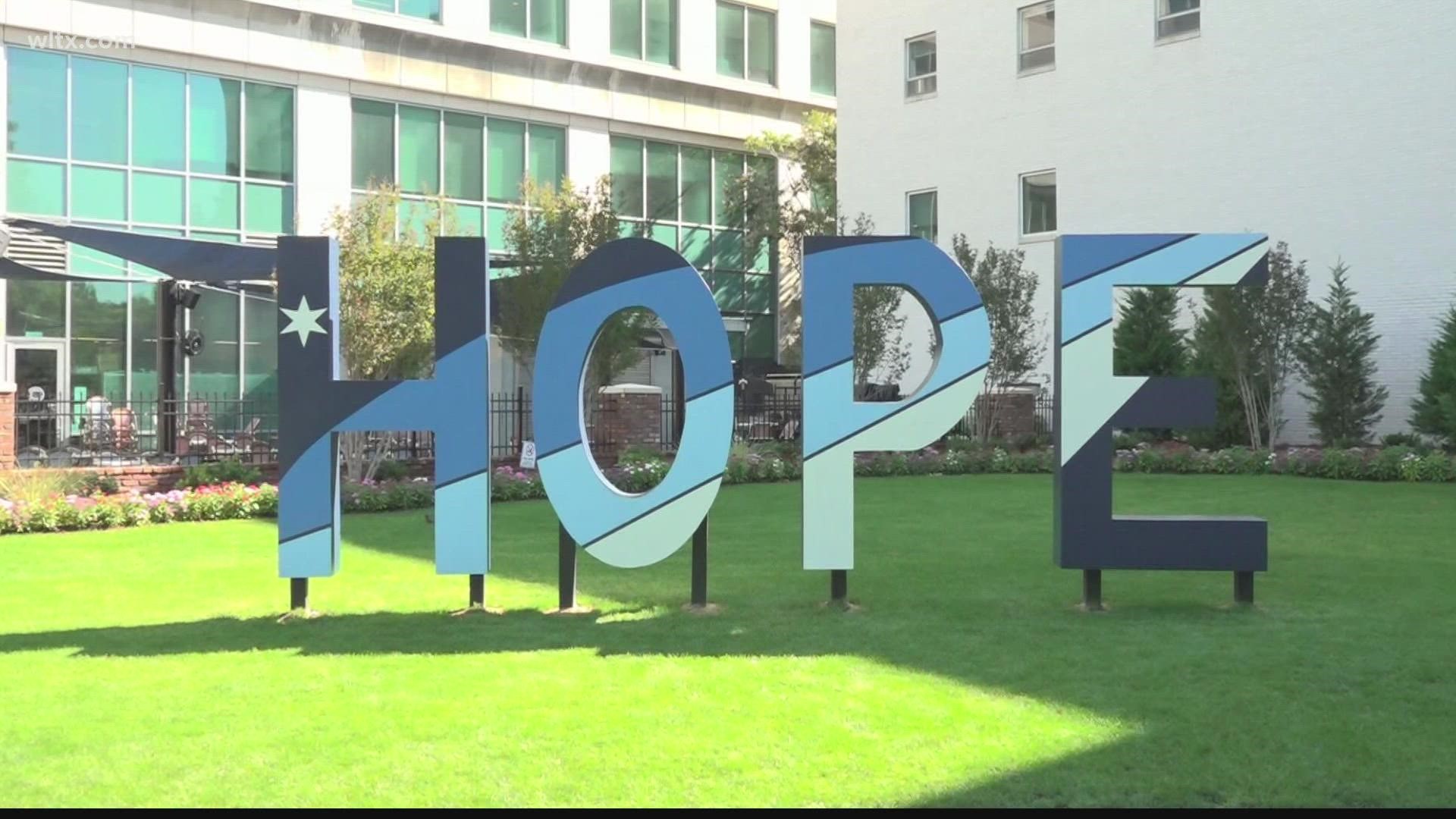COLUMBIA, S.C. — South Carolina agencies believe a rise in opioid addiction has been one effect of the coronavirus.
In the last five years, opioid-related deaths increased by 61% in the Palmetto State.
On this National Recovery Month, we're learning more about a new resource helping more South Carolinians on their path to recovery.
It's a new training called Community Based Recovery Support: An Intro to Recovery Support For All, launched by state non-profit Hold Out the Lifeline.
"We want to make sure we're reducing the stigma of addiction as well as increasing the understanding of addiction and recovery and encouraging others to seek help earlier," said Tori West Oluseyi, training consultant for Hold Out The Lifeline.
The organization works with hundreds of churches across the state to help educate the public on critical health topics like COVID-19, the vaccine, and the opioid epidemic.
With the new training and in partnership with the South Carolina Department of Alcohol and Other Drug Abuse Services (DAODAS), Hold Out the Lifeline is now adding recovery support.
"Churches are important because so many people go to church on a weekly basis, so we recognize that that is a pillar for so many people to receive information - particularly information they may trust," said Oluseyi.
Through their outreach, Hold Out The Lifeline is targeting seven areas based on the high use of opioids and the number of overdoses and deaths: Richland, Lexington, Sumter, Greenville, Spartanburg, Charleston, and Horry counties.
RELATED: Nonprofit working with DHEC, faith leaders to educate underserved communities about COVID-19
Sara Goldsby, director of SC DAODAS, said South Carolina experienced a reduction in our overdose mortality rate from 2018 to 2019, which was well below the national average.
However, in May 2020, DAODAS began to see the opioid numbers accelerate due to the COVID-19 pandemic.
"The illicit opioids right now that are accessible, the Fentanyl we're seeing on the streets, is so dangerous. We're expecting to see with our overdose mortality in September about a 50% increase in the number of individuals who have died of overdose this year," said Goldsby. "There is assistance to get to that place of peace."
Since 2000, the Centers for Disease Control and Prevention (CDC) has reported that deaths from drug overdoses have quadrupled from 17,500 to 67,400 in 2018. Almost 70% of these deaths have been attributable to opioids, including prescription painkillers (Oxycodone) and synthetic opioids (Fentanyl).
On average, 130 Americans die every day from an opioid overdose. But there is a way out, and it starts at home.
"Clean out the medicine cabinet, clean out the kitchen cupboard. Any unused prescribed medications need to be safely disposed of," said Goldsby. "The priority has got to be keeping people alive, making sure everybody knows where the overdose antidote is. We have Narcan and Naloxone all over the state."
Another key to reducing the number of overdoses and deaths, said Goldsby, is reaching everyone who needs to be engaged in treatment and recovery services.
"There is hope," she said. "The most important thing is spreading the message of hope."
Approximately 378,000 people in the Palmetto State are recovering from a substance abuse disorder.
If you or a loved one needs help, here are resources available in South Carolina:
- JustPlainKillers.com gives a list of locations where you can access life-saving resources like Naloxone
- 1-844-SC-HOPES is a 24/7 support line that can connect any caller with a substance abuse issue to a licensed addictions counselor or a peer support specialist
- Hold Out the Lifeline has more information on their website, including new educational videos about the opioid epidemic and how to get involved in their new training. You can also reach them by phone at 803-401-5307
- The campaign Embrace Recovery SC kicked off a few months ago, working to change the way people view those recovering from substance abuse
- https://sc-hopes.com/# provides mental health and addictions support

